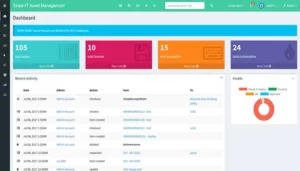A company can acquire software in two main ways: purchasing from a vendor or developing custom software in-house. Each option has its benefits and challenges; however, the latter has more benefits, especially for fast-growing organizations. Most companies focus on customizing their in-house software rather than buying due to the changing business environment.
Customization can be expensive in the short term; however, the long-term benefits can save you high business costs. The benefits can be felt by various business stakeholders such as employees, customers, suppliers, etc. Here are some reasons to consider custom software for company needs and functions.
Customized to organization needs
The one challenge with vendor software is universality, i.e., they are designed for universal, standard, or broader needs rather than specific needs. Companies may be in the same industry and manufacturing similar products; however, their functions and needs differ entirely. This makes it challenging to customize the software, or the team has to do multiple modifications to factor in business needs, functions, and activities.
During a mobile app development strategy, you need to consider the needs of different systems or software users. The process enables you to factor in their needs to create user-friendly software. With customized software, you get systems designed and purposed for employees, customers, and organization needs. This can boost customer satisfaction when using the software since it specifically covers their unique and individual needs.
Software customization also enables the company to handle all security needs effectively. Since it understands the nature of data, operations, and weaknesses, the software can be developed with all these in mind, making it secure and less vulnerable than standard software. Employees will get all the features they need within the software, including the minor features that may not be available in the standard software. Including all these features makes it ideal for the organization and company needs and can solve specific problems related to the company.
Software Scalability
Every organization needs software that will help them grow all through hence the need for customized software which can be updated quickly based on the expanding organization’s needs. Companies spend more purchasing software for different life cycles and growth stages. Such expenses tend to be higher as the organization grows in size and outweighs the capability of the previous systems. With customized software, the company can predict its future growth and capabilities; hence the system is open for expansion as the organization grows.
Despite being expensive, SMEs should consider customized software to grow with it hence avoiding all the costs for software acquisition. Customized software can support organizational growth in various aspects, such as product line growth, resource growth, expansion, and other activities. Most software vendors design software for different companies based on sizes to enable them to trap companies into buying other software in case they are expanding in terms of size and products.
The only way for the business to avoid the trap is to make in-house software that caters to all business needs.
Cost saving strategy
Companies incur high costs regarding software outsourcing, acquisition, changes, and other needs such as maintenance and updates. Such costs can easily affect the organization in the long run; however, with customization, the costs are high in the short-term or development stage. However, once deployed, the costs are significantly reduced.
The company does not need experts for maintenance, updates, and troubleshooting. All these functions are indoors, making it cheaper in the long run. You can customize the software to meet the departments’ needs, saving the company from the costs of acquiring independent software for individual needs and functions. With limited future expenses, the company will recoup its ROI fast and not worry about other software acquisition software once all the requirements are sorted at the development stage.
Impact on productivity and performance
The nature of the software used in the company significantly impacts employee productivity. Customized software does not require further changes and modifications; hence employees will get to work immediately. Standards will require modifications then the employees will have to make other changes as they use the system. Eventually, it will be time-consuming to make all these changes, and sometimes the changes may require further procedures such as restarting computers hence wasting time.
Customized software can be user-friendly since employees already understand company needs and activities; hence no need or limited need for further training. They can quickly get acquainted with the software and use it instantly without many problems. They can also troubleshoot and solve problems since they understand the system.
Integration with other applications
Once you customize the software in-house, you should forget issues such as compatibility since all the functions are run and tested before implementation. This makes the software user-friendly, easy to use, and compatible with all the company programs and applications. The update process is also fast and streamlined since all the software operates on one platform designed and runs internally. The problem can be solved easily in case of any bug since the internal team already understands all the internal IT matters.
Conclusion
A company should customize its software to enjoy the cost, usability, and performance benefits. Standard or vendor software requires a lot of time to modify to meet business needs and can sometimes present challenges such as incompatibility and require training. You do not have to deal with all these challenges with customized software.







